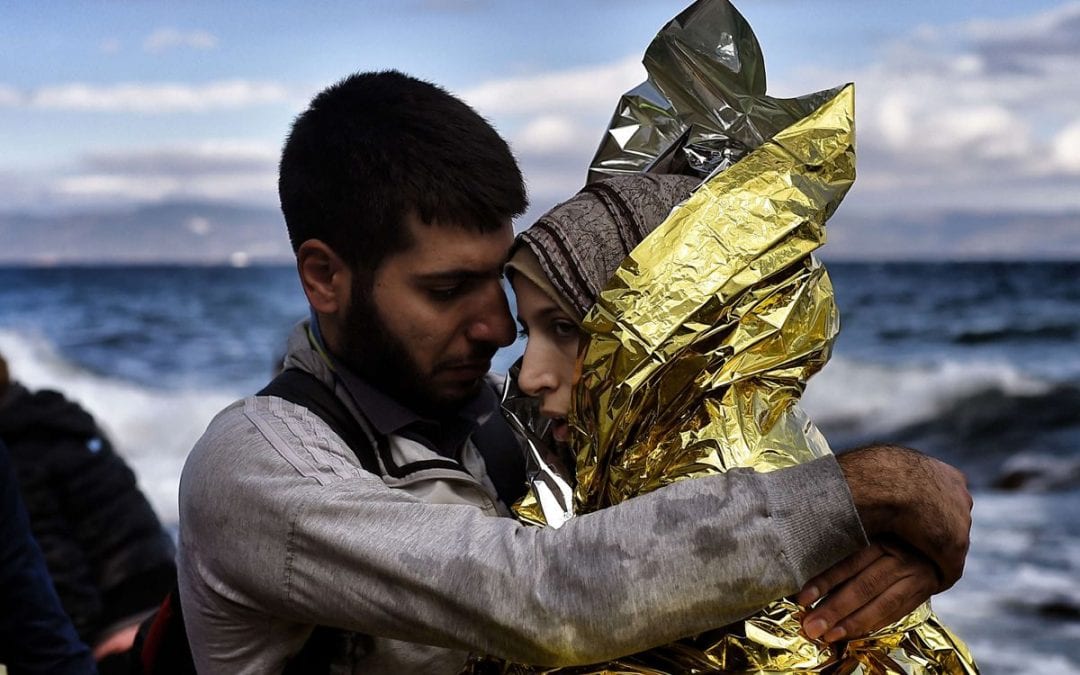By India-May Osborne
India-Mae Osborne analyses the refugee crisis in Greece and the treatment of migrants and asylum-seekers.
Over 1 million displaced peoples fled Asia, Africa and the Middle East for Europe in 2015 alone. By April of 2016, this number had increased by 179,000. These are vulnerable peoples, victims of war and torture, families with young children, women either single, pregnant, or travelling alone with children, and those suffering disabilities in need of immediate care. Yet despite their vulnerability and dire need for safety, security and shelter, many of these refugees are treated as prisoners.
Because of its geographical location, Greece is seeing the brunt of the European Refugee crisis at its doorstep. It is consequently struggling to adequately process and support the increasing number of arrivals, as the EU’s wealthier states refuse to hold up their end of the bargain outlined in The Dublin System’s Common European Asylum System Policy.
The most important step in allowing an asylum seeker refuge is determining whether they constitute refugee or migrant status. An individual is only considered a refugee and can only seek asylum if the person has a well-founded fear of persecution. But it takes time to confirm ones migrant or refugee status, and under Greece’s Containment Policy, refugees are banned from travelling to mainland Greece until their asylum process is complete. In the meantime, vulnerable asylum seekers are kept in camps for lengthy periods, some for up to a year.
“Thin, shivering figures drinking water from washed-out motor oil jugs,” “the stench from open-pit latrines mingling with the odour of thousands of unwashed bodies,” and “Children hacking like old men. Angry shouts as people joust for food.” This is how Griff White of The Washington Post describes the sights, smells and sounds inside these camps.
According to UNHCR spokesman Cheshirkov, over 6,000 people are crowded in the Moria camp in Lesbos, which was designed to hold only 2,000, while in Vial, a camp in Chios, more than 2,000 live in a space meant to hold only 1,000.
So what about human rights? The violations are numerous. Under Article 2 of The Universal Declaration of Human Rights, discrimination shall not be made based on the “jurisdictional or international status” of ones home country. Under Article 5, “No one shall be subjected to cruel, inhuman or degrading treatment or punishment,” yet the European Court of Human Rights rules that conditions in these camps are equal to “degrading treatment,” with poor quality of food, lack of privacy, and inadequate healthcare. Under Article 9 “No one shall be subjected to arbitrary arrest, detention or exile,” and finally, under Article 14, “Everyone has the right to seek and to enjoy in other countries asylum from persecution.”
The fundamental tension appears to be that between the human rights of refugees, and state sovereignty and autonomy. But what is the purpose of a clear human rights document like the UDHR if state interests can play the trump card?
More importantly, what can be done to bridge this gap? Initiatives such as the #OpenTheIslands campaign, and a joint statement by 20 humanitarian groups making calls for Greece to end its policy of containment demonstrate that work is already underway. But EU member states are the most important actors. Adopting more tolerant and less protectionist refugee policy will reduce Greece’s burden and make it more feasible for a country with already present economic struggles to support refugees and uphold their basic human rights. But whether states will move in this direction, only time will tell.
India-May Osborne is a postgraduate student in politics and international relations at the University of Auckland.
Disclaimer: The ideas expressed in this article reflect the author’s views and not necessarily the views of The Big Q.
You might also like:

